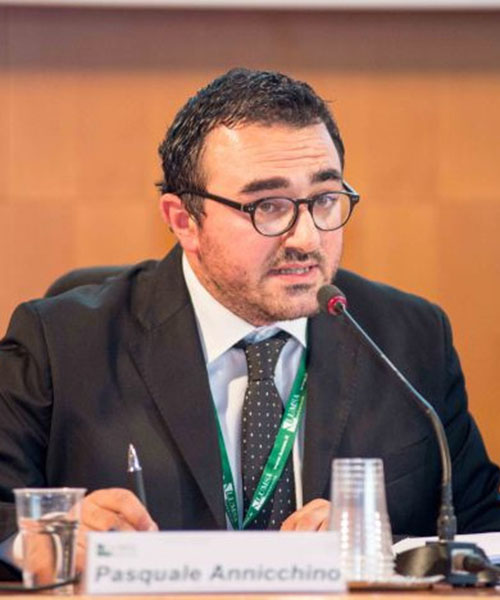In recent years we have seen growing interest in the relationship between religion and innovation. In particular, the deployment of AI solutions, with their social, legal, and ethical implications, is driving the attention of researchers, scholars, and policy-makers. This is happening in a context of adoption of digital solutions influenced by the Covid-19 pandemic which, in many countries, has accelerated the digital transition. While the adoption of digital devices and solutions continues, ethical issues continue to emerge and require new expertise and the development of new thinking on the subject.
A common basic ethical layer is in development in many countries and, also at the international level, specific regulations addressing AI deployment and emerging technologies are currently under discussion. The G20 Interfaith Forum recently addressed some of these issues through the publication of a policy brief and has constantly highlighted the important role that religious groups can play in the context of this process.

Pasquale Annicchino
Over the past few years the Centre for Religious Studies (ISR) of the Bruno Kessler Foundation (FBK) in Trento, Italy has investigated these dimensions of AI in the context of a research program on Religion and Innovation. These years of research will be summarized in a forthcoming policy paper on AI and religion that will represent one of the important deliverables of the FBK-ISR’s mission to advance the critical understanding of the complex relationships between religion and innovation.
The Bologna meeting, in the context of the G20 Interfaith Forum’s activities, has offered the opportunity to continue the conversation and the engagement on the topic. The relationships between religion and artificial intelligence have important theological, political, legal, and ethical implications. They are beginning to be analyzed through the work of different scholars and research networks. As Linda Kinstler highlighted in a recent New York Times article, “As we confront the question of what makes us human, let us not disregard the religions and spiritualities that make up our oldest kinds of knowledge.”
In the interplay between ethics and regulation, civil society organizations (including religious groups) can contribute to the public debate by bringing in their values and expertise. This is especially important given the geopolitical role that religions play and the geopolitical dimensions of the race to regulate AI.
On September 29th the United States and the European Union launched a new Trade and Technology Council with the aim to establish concrete cooperative steps, with a specific focus on artificial intelligence. A press release highlights the importance of AI in the context of the future work of the TTC. It states that the United States and the European Union will:
consider that artificial intelligence (AI) technologies have the potential to bring significant benefits to our citizens, societies and economies. AI technologies can help tackle many significant challenges that we face, and they can improve the quality of our lives. The United States and European Union acknowledge that AI technologies yield powerful advances but also can threaten our shared values and fundamental freedoms if they are not developed and deployed responsibly or if they are misused. The United States and European Union affirm their willingness and intention to develop and implement AI systems that are innovative and trustworthy and that respect universal human rights and shared democratic values.
The development and deployment of AI solutions is also closely linked to the democratic nature of our society and our institutions. Again, to quote from the press release,
The United States and European Union have significant concerns that authoritarian governments are piloting social scoring systems with an aim to implement social control at scale. These systems pose threats to fundamental freedoms and the rule of law, including through silencing speech, punishing peaceful assembly and other expressive activities, and reinforcing arbitrary or unlawful surveillance systems.
As the latest policy developments highlight, the debate on the societal role of AI is here to stay. It will not be a debate only for engineers or software developers. Given the possible human and social implications, it is important that religious groups also make their voices heard.